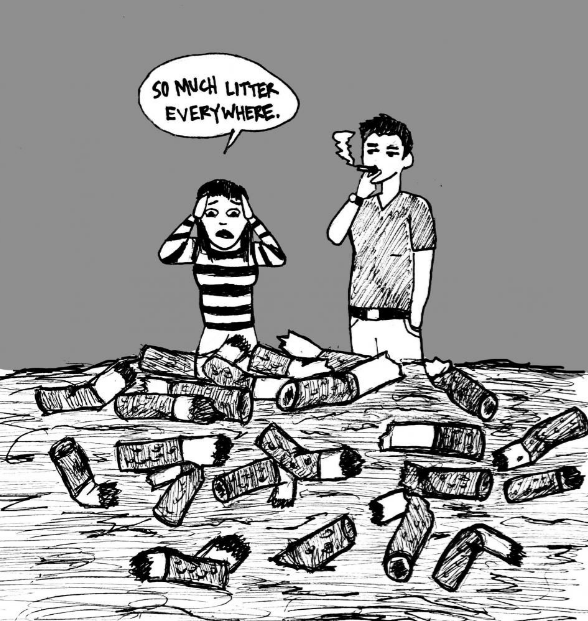Fine delivers grim message
Severity of punishment lacks compassion for tobacco addicts
May 3, 2017
The statewide push, propelled by the Student Senate of California Community Colleges (SSCCC), to universally ban all smoking of tobacco, marijuana and even e-cigarettes on campuses has trickled down to the district level.
If this motion passes at the May 24 Contra Costa College District Governing Board meeting, anyone caught smoking on its three campuses will face fines of up to $100.
Imposing a fee like this runs counter to the claim of promoting health. Smokers would no longer be permitted to smoke their overpriced cigarettes in campus parking lots. But this wouldn’t stop them from smoking.
Academic Senate President, and kinesiology professor, Beth Goehring said the fines would scale up for repeat smokers, starting at $25 and topping out at $100.
Cigarettes kill, and people should not smoke cigarettes because it causes all types of horrible cancers. This science is settled. But heaping more financial strain onto students and faculty who are dealing with tobacco addiction is no way to solve the problem.
Tobacco addiction is famously difficult to break. So when official word comes down and backlash eventually arises, the district must be able to explain why they are charging the students suffering from addiction.
Goehring asked, “Will they start a smoking cessation program to help people?”
She said she understands the strain students are under and suggests some leniency for students, perhaps allowing them to perform some service instead of leveling a simple financial burden.
This solution is also supported by the SSCCC’s Legislative Affairs Committee’s Active Resolutions Dispositions Packet for spring 2017. It states, “Implementation and enforcement should be addressed at the local community college level with respect and concern for student financial well-being.”
But Goehring said the issue was discussed last semester at a District Governance Committee (DGC) meeting and could be in effect as early as the end of summer.
At this DGC meeting, managers, faculty, classified employees and student representatives voted and all but the faculty representative agreed that a total ban and fines should be considered.
She said another vote was held this semester without student representation — and again, only the faculty representative voted against the ban, again based on opposition to the fine’s structure. So the proposal was sent off to the Governing Board.
The Governing Board’s vote will be the final decision on the matter. If passed it will be district policy, though it will take some time to write the ban into the bylaws and procedures of the district.
Police Services Lt. Tom Holt said currently there is no financial penalty for people who smoke outside the parking lots.
People who don’t stop smoking on campus after a warning can face referrals and academic penalties instead, Holt said.
“We, at (Police Services) are not the ones who are changing it (policy),” he said. But they would be charged with enforcing it.
The Chancellor’s Office and the SSCCC are applying pressure for smoke-free campuses statewide, but this should not influence this district to institute fines and eliminate smoking areas.
Instead of fines, they should create a policy that is fair.


